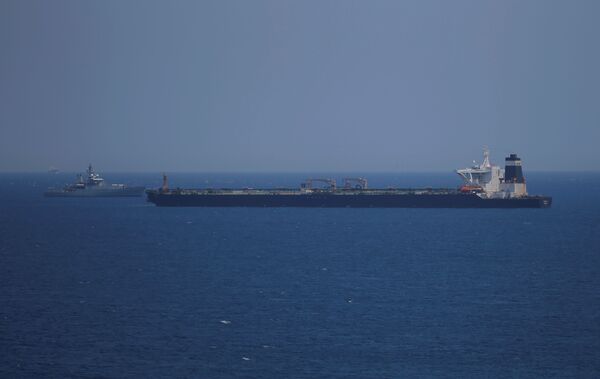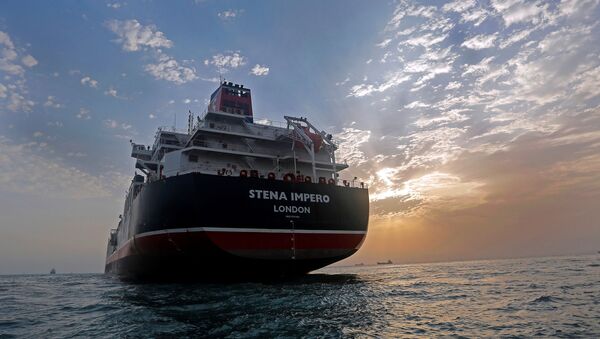UK Foreign Minister Dominic Raab said in a statement on 1 August that London is not planning to negotiate with Iran over a suggested mutual release of previously arrested tankers and called on the Islamic Republic to act "responsibly" to mend its relations with the UK.
"If people or nations have detained UK-flagged [ships] illegally then the rule of law and rule of international law must be upheld. We are not going to barter a ship that was detained legally with a ship that was detained illegally: that's not the way that Iran will come in from the cold", Raab said.
Raab already spoke against the "quid pro quo" exchange of arrested tankers between the two countries on 29 July, arguing that the tanker with Iranian oil was seized by the UK legally, while the British tanker in Iranian waters was not.
The two states' relations deteriorated after British police arrested the tanker, Grace 1, carrying Iranian oil, and some of its crew on 4 July over a tip from the US claiming that the crude was destined for Syria and thus allegedly violating EU sanctions against the Arab republic.

Iran rejected the allegations and demanded the ship be released. Tehran sees the vessel’s detention as illegal and as a violation of the Iran nuclear deal, since it endangered its oil trade. The Islamic Republic further warned it may detain a British tanker in response.
Iran later detained a British tanker, the Stena Impero in its waters over allegedly violating maritime laws after the vessel collided with an Iranian fishing boat to further investigate of the incident. While Tehran stated that the arrest wasn’t a "retaliation" for the Grace 1, Iranian officials still suggested to London a mutual release of the detained vessels and their crews.


